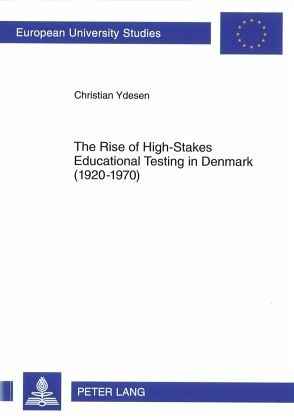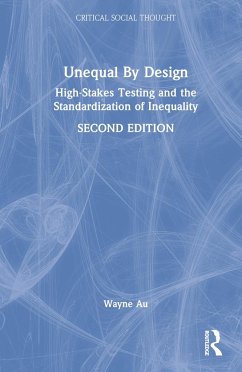
The Rise of High-Stakes Educational Testing in Denmark (1920-1970)
Dissertationsschrift
Versandkostenfrei!
Versandfertig in 6-10 Tagen
64,80 €
inkl. MwSt.

PAYBACK Punkte
0 °P sammeln!
The Rise of High-Stakes Educational Testing in Denmark (1920-1970) is an attempt to determine why and how tests rose to prominence in an educational system that used to rely on qualitative tests and teacher evaluations. The study addresses the important issues of how testing interacts with and influences an educational system, and which common factors are involved in order to implement testing in an educational system. The study is based on three relatively unknown case studies - illustrious examples of high-stakes educational testing practices in the Danish public school system. The first cas...
The Rise of High-Stakes Educational Testing in Denmark (1920-1970) is an attempt to determine why and how tests rose to prominence in an educational system that used to rely on qualitative tests and teacher evaluations. The study addresses the important issues of how testing interacts with and influences an educational system, and which common factors are involved in order to implement testing in an educational system. The study is based on three relatively unknown case studies - illustrious examples of high-stakes educational testing practices in the Danish public school system. The first case study discusses the sorting of children into remedial education based on standardised intelligence testing in the Frederiksberg municipality from 1930 to 1943, the second case study deals with the comprehensive testing programme conducted at the Copenhagen experimental school of Emdrupborg from 1948 to 1959. The third case study examines the testing of Greenlandic children during the preparation scheme in the Greenlandic educational system from 1961 to 1976.












